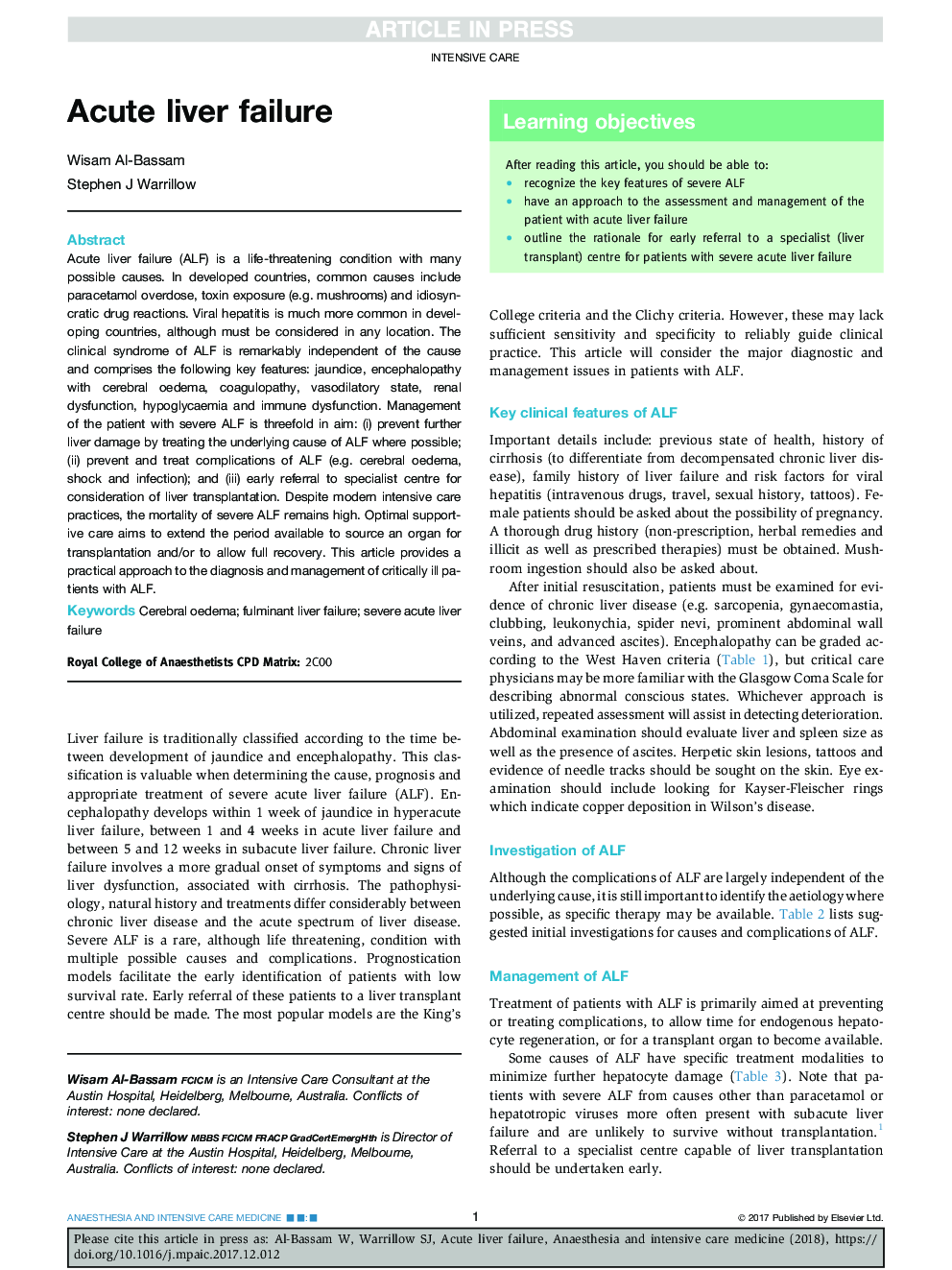| Article ID | Journal | Published Year | Pages | File Type |
|---|---|---|---|---|
| 8610045 | Anaesthesia & Intensive Care Medicine | 2018 | 6 Pages |
Abstract
Acute liver failure (ALF) is a life-threatening condition with many possible causes. In developed countries, common causes include paracetamol overdose, toxin exposure (e.g. mushrooms) and idiosyncratic drug reactions. Viral hepatitis is much more common in developing countries, although must be considered in any location. The clinical syndrome of ALF is remarkably independent of the cause and comprises the following key features: jaundice, encephalopathy with cerebral oedema, coagulopathy, vasodilatory state, renal dysfunction, hypoglycaemia and immune dysfunction. Management of the patient with severe ALF is threefold in aim: (i) prevent further liver damage by treating the underlying cause of ALF where possible; (ii) prevent and treat complications of ALF (e.g. cerebral oedema, shock and infection); and (iii) early referral to specialist centre for consideration of liver transplantation. Despite modern intensive care practices, the mortality of severe ALF remains high. Optimal supportive care aims to extend the period available to source an organ for transplantation and/or to allow full recovery. This article provides a practical approach to the diagnosis and management of critically ill patients with ALF.
Related Topics
Health Sciences
Medicine and Dentistry
Anesthesiology and Pain Medicine
Authors
Wisam Al-Bassam, Stephen J. Warrillow,
